Fact or fiction?
Posted By Andy Fry On 23-04-2014 @ 3:09 pm In Features | Comments Disabled
Documentary channels are increasingly turning to scripted series to tell real-life stories. Andy Fry looks into the implications.

Dirk Hoogstra
Drama based on real-life events – aka factual drama – is nothing new, but the genre’s emergence as a primetime tentpole on History, Discovery and National Geographic Channel is a significant development for the TV industry.
Series like Vikings, The Bible (a religious work certainly, but with some factual basis), Klondike and Killing Kennedy have all been so successful in the ratings they have forced a strategic reappraisal by broadcasters, producers and distributors alike.
Explaining A+E Networks-owned History’s decision to go down this route, Dirk Hoogstra, exec VP of development and programming at History and H2, says: “Five or 10 years ago we would probably have gone after the core audience with a documentary about Vikings. But now that we’ve grown into a top-five cable network, we need more of an entertainment-driven strategy. To get the ratings required to appeal to a wider audience and to advertisers it made more sense for us to invest in a drama and get Michael Hirst [The Tudors] to write Vikings.”
Hoogstra has been a leading figure in the current wave of fact-based fiction, producing Hatfields & McCoys before going on to oversee Vikings and The Bible. Does he see factual drama as a threat to classic documentary? “I don’t see a downside for a couple of reasons,” he says. “Firstly, we produce only 30 hours of fiction a year, about one series or miniseries a quarter. Secondly, we’re bringing history to life. These shows inspire audiences to research history, which is good for the documentary genre.”
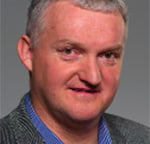
Hamish Mykura
While the aim of the fiction-based strategy is to reach a wider audience, History’s subjects are carefully selected to avoid alienating the core audience, he adds. “We’ve got 30 years’ experience of what our audience likes. We know they’re interested in the Vikings because of our factual series Barbarians. And we also know they’re interested in the Second World War. That’s why one of our next miniseries will be The Liberator, the story of a US colonel who helped liberate Dachau concentration camp,” he says.
Western hit Hatfields & McCoys was an early indicator of what works for History’s mainly male audience. So it’s no surprise Hoogstra has greenlit a new Western from the same writer/producer team, Texas Rising, which centres on the Texas Rangers.
Hoogstra’s advocacy of factual drama is echoed by Hamish Mykura, exec VP and head of international content at National Geographic Channels International (NGCI). “Drama has played an important role in the factual area for quite some time,” says Mykura. “In my previous role [as head of documentaries] at Channel 4, I was commissioning projects like Trafalgar Battle Surgeon and The Relief of Belsen.
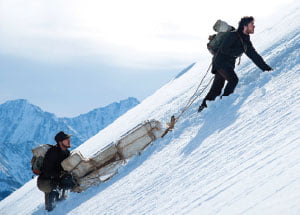
Klondike
“At National Geographic, there’s also a rich portfolio of factual drama such as American Blackout, Miracle Landing on the Hudson and shows like Killing Lincoln and Killing Kennedy.”
While part of the rationale for factual drama is the pursuit of ratings, Mykura shares Hoogstra’s opinion that the use of fiction can reinforce the factual mission rather than dilute it. “Drama is a way of telling a story when the materials aren’t available to produce a documentary,” he says. “In the case of Miracle Landing on the Hudson [about the ditching of an airliner on the New York City river in 2009] it was a way of exploring how people felt inside the plane. It is also useful for ‘what if?’ stories like Blackout. These aren’t factual but they apply the same scientific rigour as a Nat Geo documentary would.”
For Mykura, this is a critical point. “Audiences have certain expectations when they come to this channel,” he believes. “So we have to make sure drama is used to support those expectations.”
BBC Worldwide (BBCWW)’s head of factual Mark Reynolds has been involved in factual drama since the late 1990s, when projects like Pompeii: The Last Days and Pyramid sparked an earlier wave of interest in the genre. For him, the big shift since then has been towards increased sophistication in such drama. “The journalistic rigour and fact-checking are still there. But there’s more focus on the drama direction, scriptwriting and casting. If you take The Challenger Disaster, which we coproduced with The Science Channel, it was powerfully acted by established talent, including William Hurt,” says Reynolds.

Nikolas Huelbusch
While recent factual drama headlines have belonged to the US cable channels, the fact BBCWW is involved shows that the current interest in the genre is actually much broader. “We sold The Challenger Disaster into 15 markets, including China and Japan,” says Reynolds. “Broadcasters are all searching for stand-out events and these dramas, which are rooted in recognisable events, can play their part.”
This point extends, in particular, to productions linked to historical anniversaries, adds Reynolds. “One of our biggest factual drama projects is 37 Days, a three-parter on the complex story of the countdown to the First World War,” he says. “It’s classic factual drama territory because it tells a story much more effectively than a documentary could.”
Another company exploring factual drama is ZDF Enterprises. While the German firm is best known for classic docs, Nikolas Huelbusch, project manager of factual coproductions and development, says it is also keen to get involved in hybrid projects. To this end, it has linked up with Storyhouse Productions on two English-language docudramas.
“The first is Mammoth Outbreak, which looks at what would happen if a mammoth was exhumed and triggered a viral outbreak,” says Huelbusch. “The other is World War A, which explores what would happen if aliens landed and started using our resources. This is a new direction for us but in line with what broadcasters are looking for.”
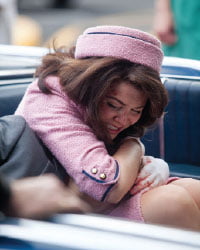
Killing Kennedy
All this seems to add to the pressure on traditional docs. But many still see a key role for the genre. At Zodiak Rights, head of factual Emily Elisha has found room in her line-up for straight docs The Man Who Stopped WW3, about the Cuban Missile Crisis, and Hiroshima-themed The Day They Dropped The Bomb. “There are certain elements we require before acquiring this kind of production,” she says, “but assuming they are present, we see a strong role for high-end documentaries.”
Key requirements include “a link to an anniversary, a talented producer/director and some unique elements to the story, in terms of either archive or personal testimony. In the case of The Day They Dropped The Bomb, the director is Leslie Woodhead, who is known to the international market for The Day Kennedy Died.”
For Elisha, the current strength of factual drama is part of a wider trend, which has seen factual content forced to become less didactic. “The signs were already there with the rise of character-based reality series,” she says. “Factual producers have had to find new ways to keep audiences. If they do that, then broadcasters will respond. The Day They Dropped The Bomb, for example, is being made for commercial network ITV.”
As for the mechanics of slots, she doesn’t think factual drama is causing many problems. “There are a couple of reasons: channels like Smithsonian Network are taking up the space vacated by other factual channels; and factual pieces are often used as companions to factual drama,” says Elisha. An example is Feynman: The Challenger, a one-hour companion to The Challenger Disaster.
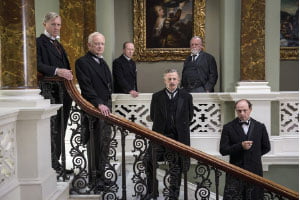
37 Days
Factual producers are not unduly worried by the current wave of factual drama. Pioneer Productions’ creative director Ailsa Orr was previously at the BBC, where she was involved with ground-breaking factual drama productions such as Pompeii, Super Volcano and Hannibal.
She recalls: “We had a six- or seven-year run of doing factual drama and then it went away. The fact is that programme trends are cyclical. At a certain point, sub-standard projects start creeping into the market and broadcasters look for something different. Last time round, factual drama was replaced by a run of big authored blue-chip documentaries with presenters.”
Like her peers, Orr says drama has a real value when dealing with “ancient subjects, stories that are hard to visualise or stories with no contributors.” But despite a strong belief in its educational efficacy, she hasn’t prioritised it at Pioneer. “There are lots of ways to reskin factual stories,” she says. “The areas we’re looking at now are live events and mashing up genres, such as history with comedy or blue-chip factual with reality. The big mistake would be to simply use drama for the sake of it.”
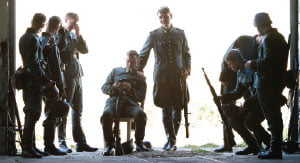
Radical Evil
First Hand Films’ CEO Esther van Messel shares Orr’s view that there is plenty of life left in factual filmmaking. “It has come a long way in terms of its plotting, pacing and characterisation,” she says. “It has become a lot more dramatic without having to become factual drama. On our slate right now we have Radical Evil, a psychological study of evil that would stand up alongside any drama.”
In van Messel’s opinion, the current factual drama cycle may already be peaking. “A lot of producers have jumped on the fiction bandwagon with ideas that aren’t actually that good. There’s actually the start of a resurgence for documentaries that make good use of archive.”
Japan’s NHK is another key player that sees drama as a tool that can be harnessed, rather than a threat to factual filmmakers. Sayumi Horie, senior producer, international coproduction, says: “We continue to search for new ways of storytelling and use methods like drama, animation or comedy in factual stories to reach more audiences. For example, we did a two-part series about pandemics. One episode was a drama, the other was a documentary. Although there was no avian flu outbreak in Japan, the drama was important to raise awareness of how it spreads.”

Esther van Messel
Returning to factual drama, one interesting question is whether drama or factual producers are best-placed to handle the latest wave of hybrid projects. NGCI’s Mykura believes both have strengths and weaknesses. “The challenge for factual producers is that they are not always familiar with the process of scripting and casting, and the editing is different,” he explains. “For drama producers, the issue is that they are not as fast on their feet as factual producers; they tend to be less attuned to the technical requirements of producing a fact-based series. Companies with feet in both camps are well-positioned.”
One example of this, says Zodiak’s Elisha, is Bedlam Productions, the company that made The Man Who Stopped WW3. “Bedlam produced The King’s Speech,” says Elisha, “but they also have a strong track record in factual. So when it came to making a hybrid like this they were ideally equipped.”
Companies that have emerged as frontrunners in this category include Scott Free Productions (Klondike) and Stephen David Entertainment (The Men Who Built America). However, Atlantic Productions CEO Anthony Geffen has ambitions to join them.
The company, best-known for blue-chip docs like Galapagos 3D and Kingdom of Plants, “is now working on two fully scripted dramas based on post-war historical subjects,” says Geffen. His focus is “factual drama that doesn’t require the big budgets associated with shows like AMC’s Mad Men.”
This is a compelling idea because one of the concerns about the current wave of factual dramas is cost. “In the same way Scandinavians reinvented drama, the expertise we have built up in high-end documentary-making can be used to create real-life stories,” says Geffen.
Case study: Screentime sets its sights on accuracy
Accuracy is an issue for any factual drama producer, but it has been a particular priority for veteran Australian producer Des Monaghan, who exec produced mob drama Underbelly for Nine Network and has just exec produced a follow-up, Fat Tony & Co, distributed by Endemol Worldwide Distribution.

Anzac Girls
Underbelly started by exploring events surrounding the 1990s Melbourne gang wars. Fat Tony & Co, which debuted to acclaim in February, tells the related story of drug lord Tony Mokbel, subject of a massive manhunt after he absconded to Greece.
“These are fascinating stories that expose a side of life most of us never get to see,” says Monaghan. “But they were also a lawyer’s picnic. Many of the characters were still involved in legal cases, so it made production an interesting challenge. For example, Nine wasn’t able to play Underbelly in the state of Victoria because of a trial taking place.”
Aside from the legal complexity, prodco Screentime had to deal with “the odd occasion when we were leant on,” says Monaghan. “We also had to be careful not to be manipulated by villains in the story who wanted to appear in the best light.”
Monaghan says fact-based dramas have a multi-layered appeal. “Networks like the fact there is source material you can show them when pitching,” he says. “And, from a creative point of view, you can also find stories richer and stranger than anything you might try to make up.”
Monaghan exec produced another high-profile factual drama that will be headlining at MipTV, Anzac Girls, broadcast by ABC and distributed by All3Media International. “This tells the story of five young nurses living and working on the First World War frontline,” he says. “We wanted to do something to coincide with the 100-year anniversary of the outbreak of war, but not the kind of trench stories that you often see.
“Anzac Girls deals with people who have passed on but still required a lot of sensitivity to the subject. When you’re dealing with the treasured memories of families you have to step carefully.”
In February, Monaghan stepped down as Screentime’s exec chairman to focus on production. Among the projects he is working on is Batavia, about a Dutch East Indies ship that ran aground on an island off the coast of Western Australia in 1629. “It’s an eight-hour piece that will introduce one of history’s most psychotic characters,” he says.
Article printed from C21Media: https://www.c21media.net
URL to article: https://www.c21media.net/fact-or-fiction-2/
Click here to print.